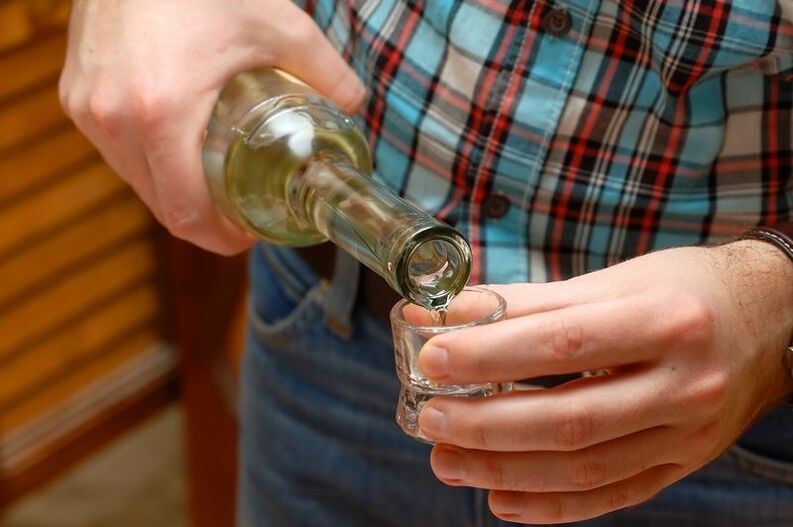
A man was walking by the sea and saw a boy picking up a starfish from the sand and throwing it into the sea. They are ubiquitous, in millions, and starfish dotted along the coast for kilometers.
Why are you throwing them into the water? the man asked, leaning closer.
"If they stay ashore until tomorrow morning, they will die, " the boy replied.
"But that's stupid! " said the man. - Look back! There are millions of starfish here, and the coast is just dotted with them. Your attempts won't change anything!
The boy picked up the next starfish, threw it into the sea, and said:
- No, my attempts will change a lot. . . for this star.
Of course, we live in an imperfect world and we cannot change that. But today you can change a lot of things for at least one person. Helping a loved one or yourself quit drinking is a big step toward a truly fun, fulfilling life. But, frankly, it has nothing to do with a person. The devastating impact of alcoholics on the health of their entire family should not be underestimated.
Adults (spouse, parents) living next to alcoholics tend to give up their desires, have no opportunity to realize themselves and develop creatively, forget their favorite hobbies forever, and lose the ability to enjoy each day.
Instead, they voluntarily doom themselves into a cycle of the same problems, connecting in one way or another with someone who can't stop drinking. The problem becomes especially acute if there are children in the family, because children can easily imitate their parents and accept all their habits.
So, as the child grows, and without her knowing it, the wife of an alcoholic can become the mother of an alcoholic, ultimately depriving herself of her life, hope, and opportunity to be proud of herself and her. relatives. Of course, addicts have this problem themselves. Alcohol damages health, disrupts (often to critical levels) the normal function of all internal organs, and severely impairs brain activity.
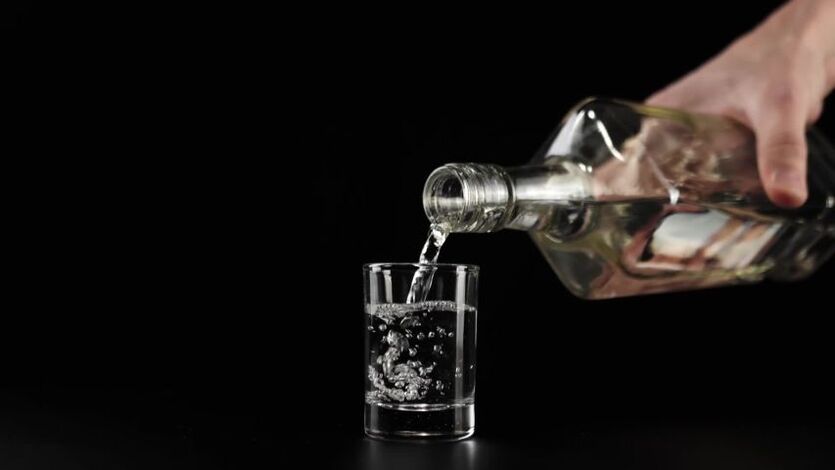
An alcoholic can change his personality and lose enough awareness of the world around him even in a sober state. In a short period of time, alcoholism deprives a person of the opportunity to live a prosperous life, personal development, and a good job. Alcohol greatly increases the risk of premature death: direct drinking and serious disease of the internal organs. Of course, alcohol can sometimes increase the risk of disability or death from accidents, accidents, injuries.
At the same time, any problem has a solution, and the treatment of alcoholism is no exception. Only you decide what your entire future life will be like. No one else is interested in this.
Can you really quit drinking on your own? Methods and Solutions
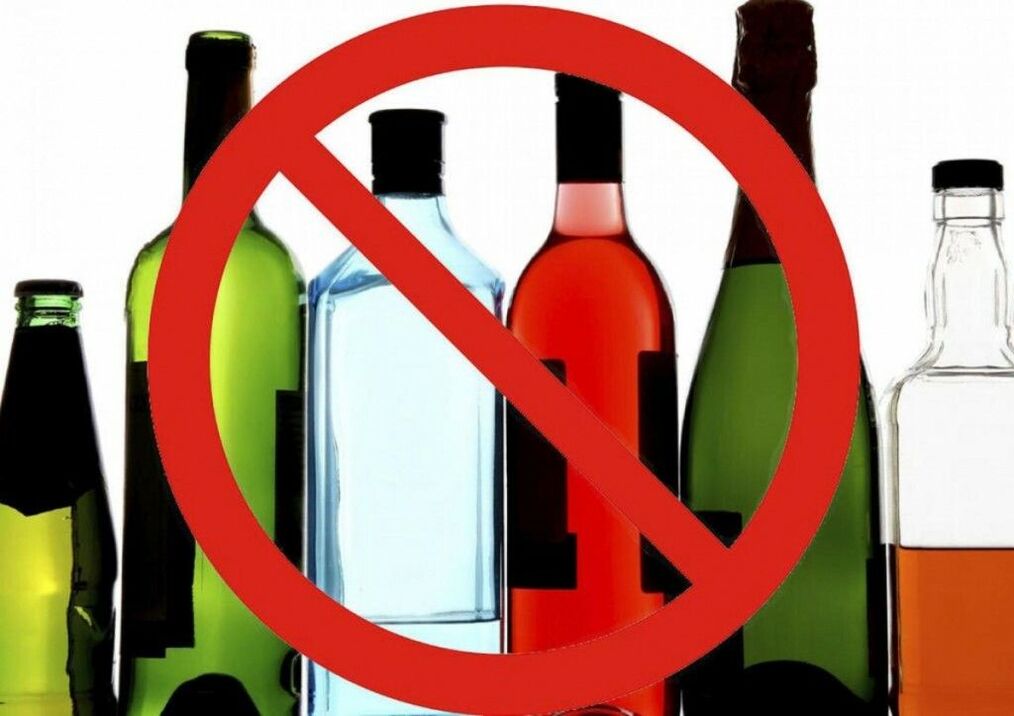
Many people today want to get rid of alcoholism, many people say to themselves: "I will quit drinking and start a different life", but unfortunately there is no universal answer to the question "how to quit drinking", like there is no "magic"Just like a stick". Fighting alcoholism is hard work changing yourself that will pay off handsomely and lead to a fun, rich life free from addiction.
Everyone is different and someone can easily quit drinking on their own volition and quickly forget this horrible habit without even knowing how they can quit drinking. Can you fix your drinking problem on your own? What are some ways to quit drinking, and which ones really work?
We help you gain confidence, become sober, and if you really want to, we will help you. We try to answer every question. And also describes the pros and cons of each throw.
self-control and discipline
A decision to stop drinking alcohol, backed by a strong will, is the best step toward getting rid of an addiction. If you are making this decision for the first time and are prepared to follow it for life, this is a great gift for you and your loved ones. But unfortunately, the other option is more common. If this isn't the first time you've made such a decision, and each time you're convinced that everything will be okay now, it's obviously time to admit to yourself that being strong-willed isn't enough.
Time and time again, you'll unknowingly create all the conditions to interrupt the mandatory break, and then, after a month, six months, or a year, start all over again. Running in circles never results in new points, so can this be considered an effect? Of course, there are plenty of reasons to encourage you to go back to the "bottle" every time. But, unfortunately, they are rarely obvious. You might think it's a matter of high work workload or difficult personal life, and the solution to the problem will be on a completely different plane.
Contacting a specialist will be a great way to discover the real source of your discomfort, it won't get you the answer to the question "how can I stop drinking" once and for all. If you suspect a personal meeting with your doctor is required, you can contact us by phone or through the form on the website and start a remote conversation that will help you make an informed decision.
- Pros: Very effective in the early stages of addiction, no deep psychological problems
- Cons: Likely to re-addict without a comprehensive approach
Simple ways to quit drinking
Among those who want to quit drinking on their own, at home, the book A Simple Way to Quit Alcohol is particularly gaining trust and interest. The title emphasizes the simplicity of the method, so it's no surprise that his book is so popular that people believe in miraculous problem-solving after reading it.
The method has many fans trying to follow all the author's instructions. But he also has quite a few opponents accusing the author of cheating and talking about the ineffectiveness of this treatment for alcoholism. This once again confirms that no system is absolutely right for everyone.
Advantages of this method:
- Additional motivating effect, confirming intent to deal with illness
- The author's answer to some people's "how to quit drinking" question can be an effective solution
Disadvantages of this method:
- The effect depends to a large extent on the initial mood and firmness of character, this book is only a supporting role
Ethnoscience
Folk remedies for alcoholism are well-liked for their simplicity and "harmless". Also, information about them is easy to find: books and the Internet contain a wealth of material on how to use folk remedies to stop drinking.
Therefore, decoctions and tinctures of some herbs can reduce alcohol cravings and even induce aversion to alcohol (thyme, wormwood, centaur). Many herbs have antidepressant properties (dragon tooth, ginseng, St. John's wort, saffron) and can even ease mood and restore the nervous system.
However, it is impossible to assert that they are unequivocally harmless for people with different health conditions.
The folk way to quit drinking at home

benefit:
- Ability to "treat" without the knowledge of alcohol-dependent individuals
- Relatively low cost and availability of herbal preparations and information on how to quit drinking with the help of traditional medicine
- Systematic and long-term use with some effectiveness according to all manufacturer's recommendations.
Disadvantages of folk remedies:
- Efficiency is not guaranteed and often unpredictable
- possible allergic reaction
- Uncontrolled use without regard to the state of the cardiovascular system of the alcohol-dependent person and their gastrointestinal tract can lead to serious complications
- The action continues only during admission, and the long-term effects of treating alcoholism are practically impossible to achieve without cooperation with a professional psychotherapist-anaesthetist.
How to quit drinking by taking dietary supplements and other "alcoholism treatments"
The supplement market is flooded with anti-alcohol pills "guaranteed" to kick the habit. For those looking for answers to the question of how to stop drinking at home, this option seems almost ideal. But in this case, the miraculous transformation usually only happens in advertising.
At best, these preparations contain vitamins and plant extracts. They will then have a slightly fortifying effect on the body and will be comparable to traditional medicine in fighting alcoholism. At worst, such drugs can be harmful to health when purchased outside of a pharmacy chain.
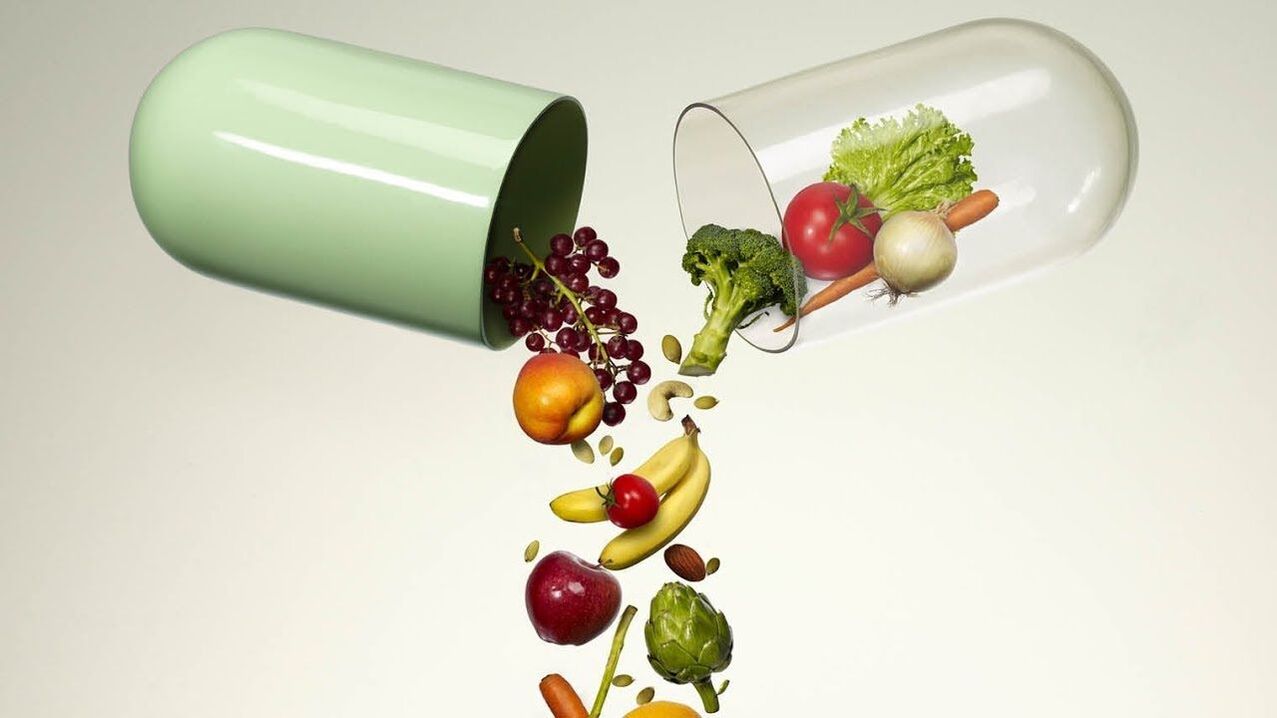
How helpful is it to stop drinking dietary supplements? May be effective in relieving hangover symptoms and signs of mild alcoholism
Are there any risks in trying to stop drinking with supplements?
- Buying outside the big chain drugstores can be dangerous
- No reliable data on the effectiveness of treating alcoholism
- Taking them in severe cases of alcoholism can be dangerous - in this case, the involvement of an anesthesiologist is always required!
Of course, drug treatment of alcoholism is a reliable and effective way to detox.
But dietary supplements here generally have nothing to do with it.
It should always be remembered that any drug treatment will only be effective and safe in one situation: only when the doctor prescribes it to this particular patient! You should never buy a treatment drug recommended by a friend, even if in his case he has shown great results. Remember, everyone is different! Self-administration is not only ineffective, but also extremely dangerous for patients.
How to quit drinking with the help of a professional anesthesiologist
Of the many "easy" alcohol withdrawal methods described in the popular literature, the most effective and correct method is treatment with the participation of a professional psychiatrist-anaesthetist. Don't be afraid of this major. There are certain situations in your life where you simply cannot do without the help of this specialist.
Ultimately, this method also proved to be the "easiest" as stable results can be obtained in more cases, and one has the opportunity to start a new bright and interesting life that is less alcohol-dependent quickly.
Apparently, a doctor who is very familiar with the details of the question, like anyone else, can give an exhaustive answer to the question of "how to stop drinking forever. "
What is my guarantee that I will stop drinking?
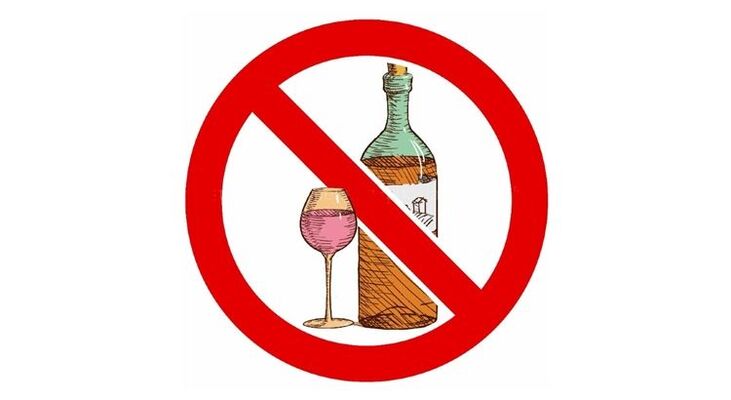
- High percentage of confirmed outcomes in patients with long-term (from 5 years and beyond) drug abstinence
- Individualized selection of treatment, taking into account the patient's current health status
- Use only proven medications and continuously monitor patient health
- A comprehensive treatment approach that involves a professional anesthesiologist-psychotherapist who can not only tell patients how to stop drinking, but also convince them to stop drinking forever.
Will I stop drinking alcohol after treatment?
It's not possible without the patient's will, but doctors have incentives that can convince patients to start treatment.
You can learn about these methods by calling, writing on the website, Skype, registering for a consultation.
How to help quit drinking in the clinic
Highly qualified doctors in the clinic: professional psychotherapists and anesthesiologists, knowledgeable and practical, will quickly find the right solution, tell you how to stop drinking in this particular situation, and choose the most suitable treatment for alcoholismMethods.
The clinic provides outpatient and home treatment, and patients are monitored by specialists at the hospital. The best treatment option is chosen individually for each patient.
Therefore, psychotherapy is appropriate for people without special preparation. Repeat sutures with the same medication in the case of successful sutures in the past. Experts only use methods that have a medical basis and whose effectiveness has been repeatedly proven. This treatment method especially consists of coding in combination with medication and is used by specialists at Ultramed clinics.
It is many times easier to quit drinking alcohol than it is to quit alcohol on your own, under the close supervision of a clinical specialist who chooses the right medication and performs special procedures. Only in a clinic, under the supervision of an attentive doctor, can drug addiction be cured quickly and long-term.
"How to quit drinking? " - A difficult question, but the pros know the answer. Clinic "Ultramed" guarantees high quality treatment, prompt response to your calls and reasonable prices.
You might also want to hear real people tell the story of how they quit drinking on their own, so we've put together a fun video for you.
How to Stop Drinking - Step-by-Step Instructions
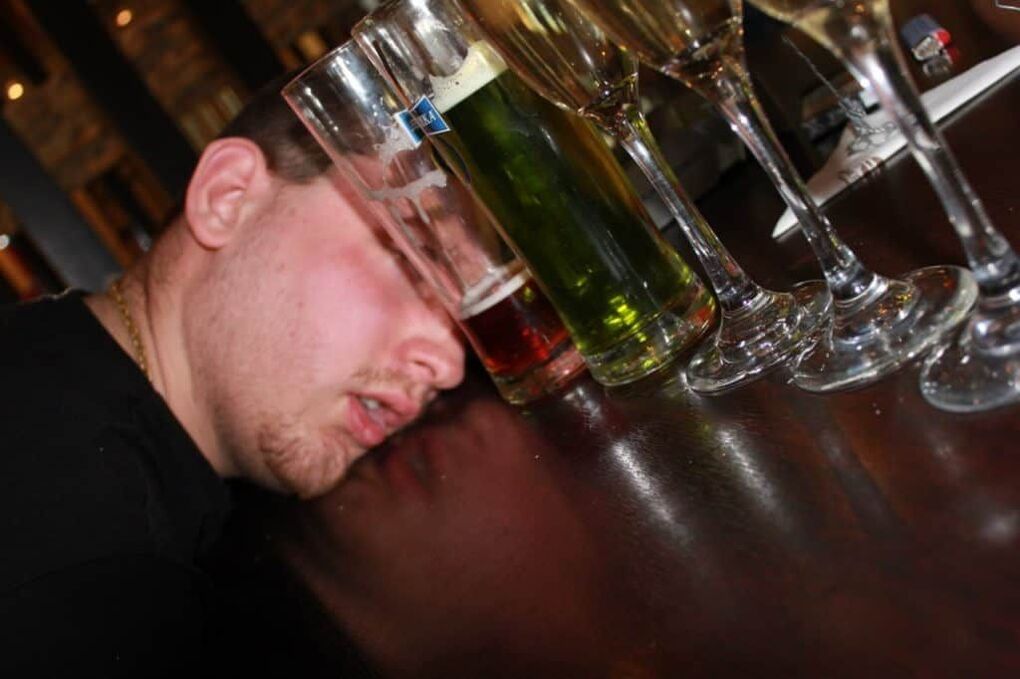
How to quit drinking? Anyone who has encountered this question will answer, very difficult, difficult. But when a person really wants to drink, you can stop drinking. However, the help and influence of relatives is very important here. To help an alcoholic stop drinking, it's not enough to just love him, you need to choose the right actions to solve the problem. Sometimes, in order to "break" alcoholics from addiction, relatives choose the wrong way to get rid of alcohol addiction, thereby making themselves alcohol dependent. To solve family housing problems, helping alcoholics quit drinking is unlikely to bear fruit. In solving such complex problems, only the sincere wishes of all involved are important.
In most cases, relatives of alcoholics choose the wrong strategy when trying to deal with the problem. This is what the wives of alcoholics usually do, acting as babysitters. They spend a lot of time and energy doing everything they can to make their family look prosperous from the outside.
How to behave in the family of someone with an alcohol addiction?
For those who have relatives - alcoholics (whoever they are: husband, wife, father, mother, son, daughter), there is a general rule: do not engage in behaviors that contribute to the further development of alcohol dependence.
Rule 1. The alcoholic must solve his own problems
Every adult must take responsibility for his own actions. If a man drinks, then it is his decision. So, for everything he does in a drunken coma, he has to "rake" himself. No relative needs to indulge his behavior. Sometimes, trying to help a relative of an alcoholic only exacerbates the situation. An alcoholic borrows money from friends and colleagues to drink, and then his wife or mother or daughter runs around, allocating the entire family budget, trying to pay off the debt. Let the drunkard pay his own debts. Don't fix his financial problems.
Those around alcoholics themselves should be well aware that alcoholism is a disease that requires complex, long-term, painless treatment. Psychologists often cite this example. If an abscess forms on the human body, it is impossible to hide it under clothing. You can't overwrite it with foundation. You can't pour the deodorant so that there is no smell. It is impossible to create comfortable conditions for a person to move less, stay at home, and reduce the pain caused by an abscess. It is these actions that lead to the rapid development of sepsis and lead to death. Despite the pain, it is necessary to open the abscess and receive antibiotics. Only after such a painful treatment will the abscess pass and the person recover.
Rule #2: Always keep your promises or keep your promises
Alcoholics, like drug addicts trying to quit alcohol and drugs, are very sensitive to the reality around them. These people have a clear sense of where indulgence awaits them, and where outright rejection awaits. In such living conditions, these people are like children. Like children, they need to be praised for right behavior and punished for misbehavior. This is where the "carrot and stick policy" works best. Any, even trivial episodes should get your attention. It is important that the level of punishment always corresponds to the level of misconduct. In this case, it doesn't matter who you deal with, with adult uncles or young people.
With the "carrot and stick" among dependents, you can achieve the most positive results.
Let us explain our words with a concrete example from life. In the case of the next orgy, the wife told her husband that she was going to divorce him. Nonetheless, the husband gets drunk again and "leaves" the spree. Wife must keep her promise! You need to go to the registry to file for a divorce and force your husband to sign the divorce. Of course, an application to the registry can always be withdrawn, but such decisive action often makes the alcoholic think about himself and his problems.
Rule 3. You yourself should always have a negative attitude towards alcohol.

You need to be a ruthless person and always speak negatively about alcohol. Any incident related to drinking alcohol, the smell of alcohol, etc. should always feature your negative opinion. Don't make loud noises, break dishes and threaten drinkers. Your actions will only make things worse. An alcoholic who goes to his drinking buddy after a scandal is more likely to complain about his bitch wife who nags him not to let him live, while also taking the pressure off communicating with her. At the same time, among his drinking partners, he will find understanding and sympathetic audiences.
You can also remind alcoholics that in developed countries in Europe everyone has their own psychotherapist or psychologist who visits them regularly. In these countries, self-sufficient people are ashamed of not having their own psychologists.
Rule #4
Therefore, every conversation with an alcoholic should end with a specific anti-alcohol solution. In a conversation like this, it would be unacceptable to stop and give him another promise to quit drinking. This is a formal method. A drinker divides such promises between the left and the right, as long as they don't pester him with such conversations. Therefore, any conversation with an alcoholic should end with a plan of specific alcohol-abuse measures. For example, ask him to promise that if he drinks again, then you will see a psychiatrist or psychotherapist right away. To prepare for such a conversation, decide in advance with the clinic and doctor. Find out their hours of operation and contact numbers. Keep this information "on hand" so you can act decisively at the right time. Be sure to make an appointment with an expert.
Rule 5. Don't drink in the presence of alcoholics
The main thing that relatives of alcoholics must do is not to leave alcoholic beverages at home and not to drink on their own.
In this case, alcohol should only be stored at home in the form of medical disinfectants (iodine, bright green, etc. ).
Although a patient who hasn't drank for years may be in a drinking company and not drink, it's worth proceeding with caution. Any irritant or circumstance must be excluded.
Remember, if you drink in front of someone who is trying to quit drinking, you are reminding him that he is sick and that you are healthy. For some people, this is very painful psychologically and hurts their self-esteem. If neither of you drink alcohol, then you share common interests. And around you, the abstinent will feel whole, and he will see the alcoholic as a sick person. The situation of one alcoholic trying to help another alcoholic quit drinking is absurd and hopeless. Such preaching is unconvincing and will not yield results. Especially if their only difference is that the first alcoholic hasn't been so bad, he hasn't had time to lose his job, and his wife hasn't divorced him.
Rule #6
Of course, it's not worth it to keep telling everyone that someone close to you is addicted to alcohol. But we can't keep silent about it either. Never deceive anyone. Don't pretend everything is fine. Don't lie to your child. Children are very sensitive and know everything by themselves. Don't force your child to lie about family alcoholism. Be sure to talk to the people who affect the alcoholic the most (his parents, friends, neighbors, co-workers, boss) and ask them for help.
Rule #7

Always be prepared to talk to alcoholics in advance. It's not enough just to tell him that he drinks a lot. Such a speech won't have any effect on him and won't bring you the results you want. Keep a diary of all the intoxications, the level of intoxication, the amount of intoxication, and most importantly, describe his behavior in this state. It would not be superfluous to shoot or take pictures while intoxicated. So you will be able to operate with confirmed facts. In the sober state, such videos or photos have a great impact on the self-awareness of the drinker.
Rule #8
In order for all negative information to be understood by an alcoholic, it must be presented to him in a creative way. Don't fill your walls with magazine articles about the dangers of alcoholism or posters calling for quitting alcohol and starting a healthy lifestyle. Aside from smirking and jeering, this doesn't make any impression on the alcoholic. It's better to tell him real life examples. Tell it inconspicuously, as if by accident. For example, one of your acquaintances, although a few years younger than you, dies, and cravings for alcohol are the culprit. Such presentation of information makes alcoholics think about themselves.
Rule #9
Begin to gently but actively help alcoholics make changes to their lifestyle. Don't wait for the moment he wants. Because such a moment may never come. Helping drug addicts start an active lifestyle. Go to the movies and theaters with him, meet friends, go to the gym, go for nature walks and more. The alcoholic himself had lost the habit of these activities, but he did not know how to start again.
Rule #10
How to help an alcoholic quit drinking? Be sure to seek help from a doctor and psychologist. They are professionals in their fields and encounter similar patients every day. They can help you deal with alcoholism and eradicate it from your family forever.































